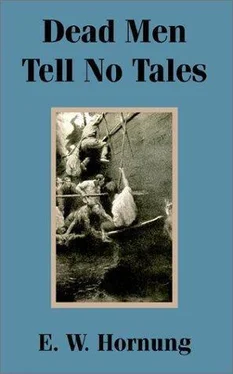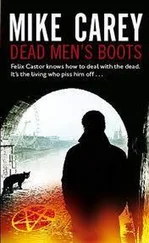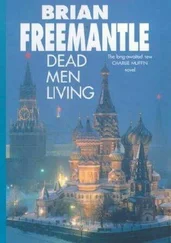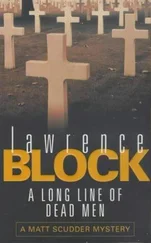E Hornung - Dead Men Tell No Tales
Здесь есть возможность читать онлайн «E Hornung - Dead Men Tell No Tales» весь текст электронной книги совершенно бесплатно (целиком полную версию без сокращений). В некоторых случаях можно слушать аудио, скачать через торрент в формате fb2 и присутствует краткое содержание. Жанр: Старинная литература, на английском языке. Описание произведения, (предисловие) а так же отзывы посетителей доступны на портале библиотеки ЛибКат.
- Название:Dead Men Tell No Tales
- Автор:
- Жанр:
- Год:неизвестен
- ISBN:нет данных
- Рейтинг книги:4 / 5. Голосов: 1
-
Избранное:Добавить в избранное
- Отзывы:
-
Ваша оценка:
- 80
- 1
- 2
- 3
- 4
- 5
Dead Men Tell No Tales: краткое содержание, описание и аннотация
Предлагаем к чтению аннотацию, описание, краткое содержание или предисловие (зависит от того, что написал сам автор книги «Dead Men Tell No Tales»). Если вы не нашли необходимую информацию о книге — напишите в комментариях, мы постараемся отыскать её.
Dead Men Tell No Tales — читать онлайн бесплатно полную книгу (весь текст) целиком
Ниже представлен текст книги, разбитый по страницам. Система сохранения места последней прочитанной страницы, позволяет с удобством читать онлайн бесплатно книгу «Dead Men Tell No Tales», без необходимости каждый раз заново искать на чём Вы остановились. Поставьте закладку, и сможете в любой момент перейти на страницу, на которой закончили чтение.
Интервал:
Закладка:
The west was a broadening blaze of yellow and purple and red. I cannot describe it to you. If you have seen the sun set in the tropics, you would despise my description; and, if not, I for one could never make you see it. Suffice it that a petrel wheeled somewhere between deepening carmine and paling blue, and it took my thoughts off at an earthy tangent. I thanked God there were no big sea-birds in these latitudes; no molly-hawks, no albatrosses, no Cape-hens. I thought of an albatross that I had caught going out. Its beak and talons were at the bottom with the charred remains of the Lady Jermyn. But I could see them still, could feel them shrewdly in my mind's flesh; and so to the old superstition, strangely justified by my case; and so to the poem which I, with my special experience, not unnaturally consider the greatest poem ever penned.
But I did not know it then as I do now—and how the lines eluded me! I seemed to see them in the book, yet I could not read the words!
"Water, water, everywhere,
Nor any drop to drink."
That, of course, came first (incorrectly); and it reminded me of my thirst, which the blood of the fowls had so very partially appeased. I see now that it is lucky I could recall but little more. Experience is less terrible than realization, and that poem makes me realize what I went through as memory cannot. It has verses which would have driven me mad. On the other hand, the exhaustive mental search for them distracted my thoughts until the stars were back in the sky; and now I had a new occupation, saying to myself all the poetry I could remember, especially that of the sea; for I was a bookish fellow even then. But I never was anything of a scholar. It is odd therefore, that the one apposite passage which recurred to me in its entirety was in hexameters and pentameters:
Me miserum, quanti montes volvuntur aquarum!
Jam jam tacturos sidera summa putes.
Quantae diducto subsidunt aequore valles!
Jam jam tacturas Tartara nigra putes.
Quocunque adspicio, nihil est nisi pontus et aether;
Fluctibus hic tumidis, nubibus ille minax....
More there was of it in my head; but this much was an accurate statement of my case; and yet less so now (I was thankful to reflect) than in the morning, when every wave was indeed a mountain, and its trough a Tartarus. I had learnt the lines at school; nay, they had formed my very earliest piece of Latin repetition. And how sharply I saw the room I said them in, the man I said them to, ever since my friend! I figured him even now hearing Ovid rep., the same passage in the same room. And I lay saying it on a hen-coop in the middle of the Atlantic Ocean!
At last I fell into a deep sleep, a long unconscious holiday of the soul, undefiled by any dream.
They say that our dreaming is done as we slowly wake; then was I out of the way of it that night, for a sudden violent rocking awoke me in one horrid instant. I made it worse by the way I started to a sitting posture. I had shipped some water. I was shipping more. Yet all around the sea was glassy; whence then the commotion? As my ship came trim again, and I saw that my hour was not yet, the cause occurred to me; and my heart turned so sick that it was minutes before I had the courage to test my theory.
It was the true one.
A shark had been at my trailing fowls; had taken the bunch of them together, dragging the legs from my loose fastenings. Lucky they had been no stronger! Else had I been dragged down to perdition too.
Lucky, did I say? The refinement of cruelty rather; for now I had neither meat nor drink; my throat was a kiln; my tongue a flame; and another day at hand.
The stars were out; the sea was silver; the sun was up!
. . . . .
Hours passed.
I was waiting now for my delirium.
It came in bits.
I was a child. I was playing on the lawn at home. I was back on the blazing sea.
I was a schoolboy saying my Ovid; then back once more.
The hen-coop was the Lady Jermyn. I was at Eva Denison's side. They were marrying us on board. The ship's bell was ringing for us; a guitar in the background burlesqued the Wedding March under skinny fingers; the air was poisoned by a million cigarettes, they raised a pall of smoke above the mastheads, they set fire to the ship; smoke and flame covered the sea from rim to rim, smoke and flame filled the universe; the sea dried up, and I was left lying in its bed, lying in my coffin, with red-hot teeth, because the sun blazed right above them, and my withered lips were drawn back from them for ever.
So once more I came back to my living death; too weak now to carry a finger to the salt water and back to my mouth; too weak to think of Eva; too weak to pray any longer for the end, to trouble or to care any more.
Only so tired.
. . . . .
Death has no more terrors for me. I have supped the last horror of the worst death a man can die. You shall hear now for what I was delivered; you shall read of my reward.
My floating coffin was many things in turn; a railway carriage, a pleasure boat on the Thames, a hammock under the trees; last of all it was the upper berth in a not very sweet-smelling cabin, with a clatter of knives and forks near at hand, and a very strong odor of onions in the Irish stew.
My hand crawled to my head; both felt a wondrous weight; and my head was covered with bristles no longer than those on my chin, only less stubborn.
"Where am I?" I feebly asked.
The knives and forks clattered on, and presently I burst out crying because they had not heard me, and I knew that I could never make them hear. Well, they heard my sobs, and a huge fellow came with his mouth full, and smelling like a pickle bottle.
"Where am I?"
"Aboard the brig Eliza, Liverpool, homeward bound; glad to see them eyes open."
"Have I been here long?"
"Matter o' ten days."
"Where did you find me?"
"Floating in a hen-coop; thought you was a dead 'un."
"Do you know what ship?"
"Do we know? No, that's what you've got to tell us!"
"I can't," I sighed, too weak to wag my head upon the pillow.
The man went to my cabin door.
"Here's a go," said he; "forgotten the name of his blessed ship, he has. Where's that there paper, Mr. Bowles? There's just a chance it may be the same."
"I've got it, sir."
"Well, fetch it along, and come you in, Mr. Bowles; likely you may think o' somethin'."
A reddish, hook-nosed man, with a jaunty, wicked look, came and smiled upon me in the friendliest fashion; the smell of onions became more than I knew how to endure.
"Ever hear of the ship Lady Jermyn?" asked the first corner, winking at the other.
I thought very hard, the name did sound familiar; but no, I could not honestly say that I had beard it before.
The captain looked at his mate.
"It was a thousand to one," said he; "still we may as well try him with the other names. Ever heard of Cap'n Harris, mister?"
"Not that I know of."
"Of Saunderson-stooard?"
"No."
"Or Crookes-quartermaster."
"Never."
"Nor yet of Ready—a passenger?"
"No."
"It's no use goin' on," said the captain folding up the paper.
"None whatever, sir," said the mate
"Ready! Ready!" I repeated. "I do seem to have heard that name before. Won't you give me another chance?"
The paper was unfolded with a shrug.
"There was another passenger of the name of San-Santos. Dutchman, seemin'ly. Ever heard o' him?"
My disappointment was keen. I could not say that I had. Yet I would not swear that I had not.
"Oh, won't you? Well, there's only one more chance. Ever heard of Miss Eva Denison—"
"By God, yes! Have you?"
I was sitting bolt upright in my bunk. The skipper's beard dropped upon his chest.
"Bless my soul! The last name o' the lot, too!"
Читать дальшеИнтервал:
Закладка:
Похожие книги на «Dead Men Tell No Tales»
Представляем Вашему вниманию похожие книги на «Dead Men Tell No Tales» списком для выбора. Мы отобрали схожую по названию и смыслу литературу в надежде предоставить читателям больше вариантов отыскать новые, интересные, ещё непрочитанные произведения.
Обсуждение, отзывы о книге «Dead Men Tell No Tales» и просто собственные мнения читателей. Оставьте ваши комментарии, напишите, что Вы думаете о произведении, его смысле или главных героях. Укажите что конкретно понравилось, а что нет, и почему Вы так считаете.












